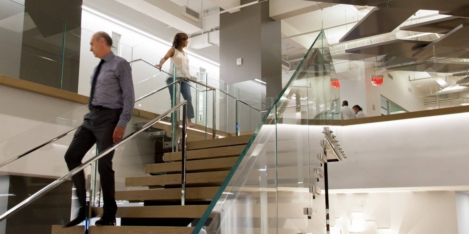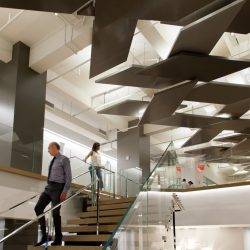June 6, 2018
War for talent is increasing as recruits have higher expectations than ever of a new job
 As employment levels rise, employers are facing stronger competition to attract and retain staff. Now the latest research suggests there is an escalation in the ‘war for talent’, as nine out of 10 new hires admit they would leave a job that fails to meet expectations within a month. According to research commissioned by Robert Half of 9,000 candidates in 11 countries across four continents, nearly half (47 percent) admit they decide whether they would or wouldn’t accept a position straight after the initial meeting. Highlighting that first impressions count, a further one fifth (20 percent) know if they are interested after the first communication (call/email), while 17 percent typically decide within the first five minutes of the interview. Less than one in 10 (9 percent) wait until they have completed subsequent interviews to decide and merely 7 percent decide during contractual negotiations. Even once candidates have accepted a role, 91 percent admit they would consider leaving a job within their first month and 93 percent during their probation period.
As employment levels rise, employers are facing stronger competition to attract and retain staff. Now the latest research suggests there is an escalation in the ‘war for talent’, as nine out of 10 new hires admit they would leave a job that fails to meet expectations within a month. According to research commissioned by Robert Half of 9,000 candidates in 11 countries across four continents, nearly half (47 percent) admit they decide whether they would or wouldn’t accept a position straight after the initial meeting. Highlighting that first impressions count, a further one fifth (20 percent) know if they are interested after the first communication (call/email), while 17 percent typically decide within the first five minutes of the interview. Less than one in 10 (9 percent) wait until they have completed subsequent interviews to decide and merely 7 percent decide during contractual negotiations. Even once candidates have accepted a role, 91 percent admit they would consider leaving a job within their first month and 93 percent during their probation period.






















 More than a quarter of managers (27 percent) in British companies would likely accept a salary cut to work for a company that has a clear purpose beyond profit a new report claims. A third (32 percent) would actually consider leaving their job if a greater purpose was unclear, while more than half (53 percent) would if their company’s values and purpose didn’t align with their own. The YouGov survey, commissioned by Danone UK, highlights the importance of having a defined company purpose that marries commercial success with social progress. The findings support a new report by not-for-profit think tank Tomorrow’s Company and Danone UK, that explores the importance of having a purpose beyond profit in helping companies to prosper in the face of workplace challenges created by an uncertain world.
More than a quarter of managers (27 percent) in British companies would likely accept a salary cut to work for a company that has a clear purpose beyond profit a new report claims. A third (32 percent) would actually consider leaving their job if a greater purpose was unclear, while more than half (53 percent) would if their company’s values and purpose didn’t align with their own. The YouGov survey, commissioned by Danone UK, highlights the importance of having a defined company purpose that marries commercial success with social progress. The findings support a new report by not-for-profit think tank Tomorrow’s Company and Danone UK, that explores the importance of having a purpose beyond profit in helping companies to prosper in the face of workplace challenges created by an uncertain world. 



















June 4, 2018
Your happiness at work is not just down to your employer
by Cary Cooper and Ivan Robertson • Comment, Wellbeing, Workplace design
More →